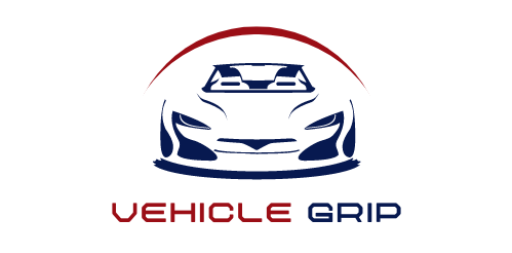The idea of leasing a car online might feel like a leap into the unknown for some, especially with a $60,000 vehicle or any significant investment on the table. In 2025, as digital platforms continue to reshape how we shop for everything from groceries to homes, online car lease brokers have emerged as a convenient alternative to the traditional dealership slog. But with convenience comes caution—is it safe to entrust an online broker with such a big financial decision? This article dives into the safety of using online car lease brokers, weighing the benefits, risks, and practical steps to protect yourself in today’s digital landscape.
Summary of what you’ll learn below:
- Leasing through an online car broker can simplify the process, often saving time and money compared to traditional dealerships.
- Safety depends on the broker’s reputation, transparency, and security measures for personal and financial data.
- Risks include potential scams, hidden fees, and misrepresentation of lease terms if using an unverified platform.
- Reputable brokers typically offer clear contracts, customer support, and secure payment systems.
- Researching reviews, credentials, and terms ensures a safer online leasing experience.
What Is an Online Car Lease Broker?
An online car lease broker acts as a middleman between you and the leasing companies or dealerships offering vehicles. Unlike walking into a showroom, you interact entirely through a website or app—browsing options, negotiating terms, and finalizing agreements without ever shaking a hand. These platforms promise competitive pricing by leveraging bulk deals or direct partnerships, often undercutting the haggling you’d face in person. In 2025, with car prices holding steady in the mid-to-upper range and leasing popularity on the rise, these brokers appeal to tech-savvy drivers looking to streamline the process.
The process typically starts with selecting a car—say, a $60,000 SUV—followed by customizing lease terms like mileage and duration. The broker then connects you with a lessor, handles paperwork digitally, and arranges delivery or pickup. It’s efficient, but efficiency doesn’t automatically equal safety. The question lingers: can you trust a faceless platform with your money and personal details?
The Safety Upside
Let’s start with the positives. Reputable online brokers offer a level of safety that rivals, and sometimes exceeds, traditional methods. For one, they often provide transparency that dealerships might obscure. You can see lease terms, fees, and totals upfront, avoiding the bait-and-switch tactics some in-person salespeople use. In 2025, established platforms have refined their systems, using secure encryption to protect your data—think bank-level SSL certificates and two-factor authentication. This means your Social Security number or credit card details are less likely to fall into the wrong hands compared to handing a paper application to a dealership employee.
Another safety net is competition. Online brokers thrive on reputation in a crowded digital market, so the good ones prioritize customer satisfaction. Reviews and ratings are readily available, giving you a clearer picture than the Yelp page of your local dealer. Plus, many brokers partner with trusted brands—think major automakers or financing giants—adding a layer of credibility. If a broker’s site lists affiliations with recognizable names, it’s a sign they’ve been vetted to some degree.
Time savings also tie into safety. By cutting out the dealership dance, you avoid high-pressure sales tactics that might push you into a bad deal. Online, you control the pace, researching terms and comparing offers without someone hovering over your shoulder. For a $60,000 car lease, where monthly payments could hit $1,000 or more, this clarity reduces the risk of overpaying.
The Risks You Can’t Ignore
But it’s not all smooth driving. The online world has its potholes, and car lease brokers aren’t immune. Scams exist—fake websites posing as legit brokers can take your deposit and vanish. In 2025, with AI and phishing tech more sophisticated, spotting a fraud can be trickier. A site might look polished, with glowing testimonials, yet be a front for thieves. Your $2,000 down payment could disappear, leaving you with no car and a headache.
Even legitimate brokers pose risks if they’re sloppy. Hidden fees—like excessive documentation charges or inflated delivery costs—might lurk in fine print, jacking up your total. Miscommunication is another trap; without face-to-face interaction, you might misunderstand mileage limits or return conditions, only realizing the error when penalties hit. For a $60,000 lease, overage fees at 25 cents per mile could add $750 if you exceed a 12,000-mile cap by 3,000 miles annually.
Data security is a bigger concern online. While top brokers use encryption, smaller or newer ones might skimp, exposing you to breaches. A 2024 study from the Identity Theft Resource Center noted a 15% uptick in automotive-related fraud, often tied to lax digital safeguards. Handing over your driver’s license or bank info to an untested site is like leaving your wallet on a park bench—safe until it isn’t.
How to Gauge Safety
So, how do you tell the safe brokers from the shady ones? Start with research. Check the broker’s history—how long have they been around? A company operating since 2020 likely has more skin in the game than a pop-up from 2024. Look at customer feedback on neutral platforms like Trustpilot or Reddit, not just their curated reviews. Consistent complaints about non-delivery or surprise fees are red flags.
Next, scrutinize their website. Does it list a physical address and phone number? Legit brokers don’t hide behind a contact form. Verify security—look for “https://” in the URL and a padlock icon, signaling encryption. Test their customer service—send a query and see if you get a prompt, human response. A bot-only reply might hint at a skeleton operation.
Contracts are your safety net. Read every line before signing digitally. A safe broker provides a clear breakdown: monthly payment, upfront costs, mileage terms, and end-of-lease obligations. If it’s vague or rushed, walk away. For added peace of mind, cross-check their offers against market rates—sites like Edmunds or Kelley Blue Book can benchmark a $60,000 car lease at $900-$1,200 monthly in 2025, so anything wildly off suggests a catch.
Real-World Protections
Legal safeguards exist too. The Federal Trade Commission oversees online transactions, and most states have lemon laws or consumer protections covering leases. If a broker misrepresents terms, you’ve got recourse—though chasing it down takes effort. Payment method matters—use a credit card over a bank transfer for easier disputes if things go south. In 2025, platforms like PayPal or Klarna, often integrated by brokers, add another buffer.
Insurance is your fallback. Standard auto policies cover leased cars, online or not, so a broker’s failure doesn’t leave you stranded. Just ensure the lease agreement aligns with your insurer’s requirements—some brokers might push sketchy gap coverage, so compare independently.
The Verdict: Safe With Caveats
Is it safe to use an online car lease broker in 2025? Yes, if you pick wisely. The best platforms offer convenience, cost savings, and security that rival dealerships, especially for a $60,000 lease where every dollar counts. But safety hinges on diligence—vetting the broker, securing your data, and understanding the deal. For a curated look at reliable options, DriveOz’s guide to the best online car lease brokers in 2025 highlights vetted players in the space, grounded in current trends.
Compare that to dealerships, where safety comes from physical presence but risks like upselling persist. Online brokers trade that tangible trust for digital efficiency, and the trade-off works if you’re proactive. Scams and sloppiness are real, but not unique to the online world—dealerships have their own horror stories.
Final Tips
Before clicking “lease now,” get quotes from multiple brokers and a local dealer for a $60,000 car. Test-drive the model elsewhere if the broker doesn’t deliver first—don’t commit blind. And keep records of every email and document; they’re your ammo if disputes arise. With these steps, an online broker isn’t just safe—it’s smart, letting you drive off with confidence in a process that’s evolved for the digital age.


